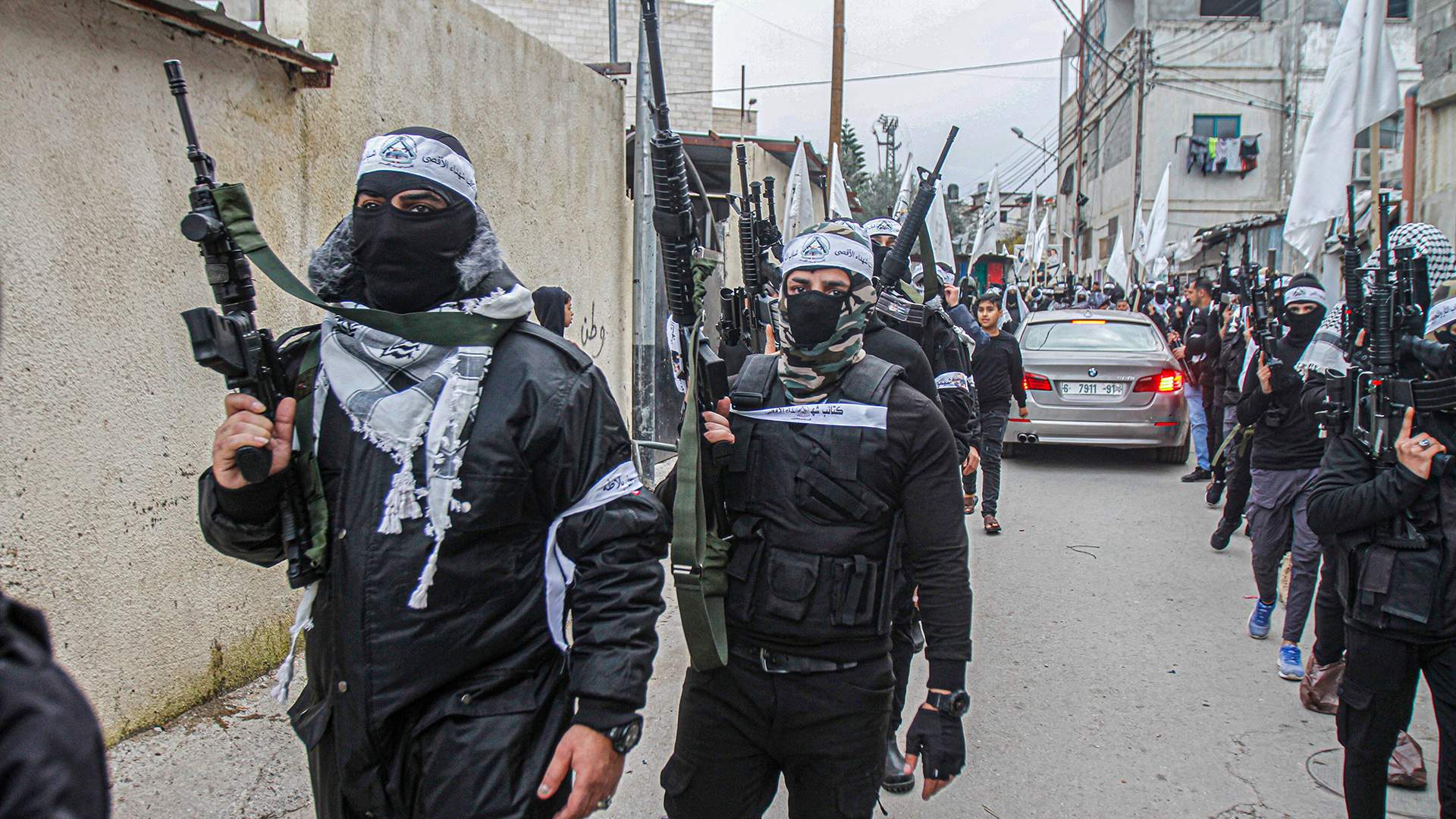Unarmed: Abbas supported the demilitarization of Palestinians in Lebanon

For the first time in eight years, Palestinian President Mahmoud Abbas arrived in Beirut with an initiative that could change the balance of power inside Lebanon. He supported the start of the process of disarming the Fatah movement in refugee camps in that country. There are 12 of them in Lebanon, and about 222,000 Palestinians live there. Abbas' visit comes amid growing pressure from the authorities in Beirut and signals to Hamas about the inadmissibility of military activity. Why this step is causing controversy among the Palestinian factions and in what conditions the refugees live — in the Izvestia article.
The problem of illegal weapons in Lebanon
Palestinian President Mahmoud Abbas began an official visit to Lebanon on May 21. The main topic of the talks was the issue of arming Palestinian groups, especially in refugee camps in Lebanon. Amid Beirut's concerns about the recent activity of the Hamas movement, Abbas called for the start of the Fatah disarmament process.
The 89-year-old Palestinian president's visit began with talks with Lebanese leader Joseph Aoun. At the center of the discussions is the development of an executive mechanism for the implementation of international resolution 1701, which provides for the transfer of all weapons in Lebanon into the hands of the State. During the three-day visit, Abbas also plans to meet with Parliament Speaker Nabih Berri and Prime Minister Nawaf Salam.
Following the talks between the presidents, a joint statement was adopted, according to which both sides expressed their commitment to the principle of exclusive control of weapons in the hands of the Lebanese State. The document says that the era of illegal weapons is over, "especially in light of the serious losses and sacrifices that the Lebanese and Palestinian peoples have endured for decades."
According to media reports, during the visit, an announcement is being prepared on the creation of a joint committee that will coordinate the process of seizing weapons from the Palestinian Fatah movement in the camps. It is planned that the committee will include representatives of both Lebanon and the Palestinian Authority.
Abbas, as noted, intends to publicly call on other factions to abandon their armed presence in Lebanon, in particular, those groups that do not directly report to the Palestinian Authority.
Military activity of Palestinian groups
However, it is precisely this aspect that makes a number of players wary. The problem is not so much Fatah as other factions, including Hamas supporters. Some of them do not recognize the authority of Abbas.
According to the Lebanese TV channel Al Jadeed, Beirut had already conveyed a clear message to Hamas representative Ahmed Abdel Hadi a few weeks ago: no armed activity in Lebanon. The reason for this was the launching of rockets at Israel from southern Lebanon on March 22, after which the issue of control over the camps became relevant again. In Beirut, they fear that such actions could draw the country into a new armed conflict with Israel.
Lebanese political scientist Yahya Harb believes that statements about the need to disarm Palestinian camps are often used in Israel's interests to substitute concepts.: "The problem is not the weapons, but why they appeared there. The reason is the ongoing Israeli occupation. As long as it exists, the resistance will have an excuse to keep the weapons." According to him, the weapons in the camps are not out of control and do not pose a real threat to the Lebanese state.
A senior source in the government of this country, in an interview with the Asharq Al-Awsat newspaper, said that the issue of Palestinian weapons — inside or outside the camps — has once again become one of the main challenges to national security. According to the newspaper, even with the wishes of Abbas and his entourage, the problem remains: there are factions in Lebanon that do not obey either Fatah or the PLO, and are not ready for a unilateral renunciation of weapons.
Without a comprehensive deal with guarantees for such groups, unilateral disarmament can be understood as capitulation. In addition, Fatah's involvement in the development of a plan to control the camps is causing protests from other factions, who perceive it as a politically motivated attempt to strengthen Abbas' influence.
Following the visit, a joint statement with a roadmap for the start of the disarmament process is expected to be published. However, without broad support among all the factions, this may remain only a declaration.
Palestinian refugee camps
The phrase "refugee camp" conjures up a picture of several hundred tents, something temporary designed to accommodate people in distress. However, in the Lebanese case, it looks more like a small town inside a big city.
The population of the camps has increased over the last decade. Syrians fleeing the civil war, impoverished Lebanese, Ethiopian, Eritrean and Bangladeshi migrant workers have all found shelter in these densely populated slums.
According to the Lebanese representative office of the United Nations Relief and Works Agency for Palestine Refugees in the Near East (UNRWA), about 222,000 Palestinians actually live in the country, of which 195,000 are refugees living in Lebanon from previous years, and 27,000 are Palestinians who arrived from Syria. There are 12 official camps in the country.
As of March 2023, 80% of Palestinian refugees live below the national poverty line. The reasons for this difficult situation are decades of discrimination, including restrictions on access to the labor market and a ban on owning real estate in Lebanon. These restrictions have already affected the fourth generation of Palestinian refugees, who are unable to accumulate capital and move into the middle class, except in rare cases of employment at UNRWA.
The so-called Popular Committees and Palestinian factions are responsible for security and order in the camps. The camps are surrounded by walls, and control over the movement of people and building materials is carried out through checkpoints.
Переведено сервисом «Яндекс Переводчик»






